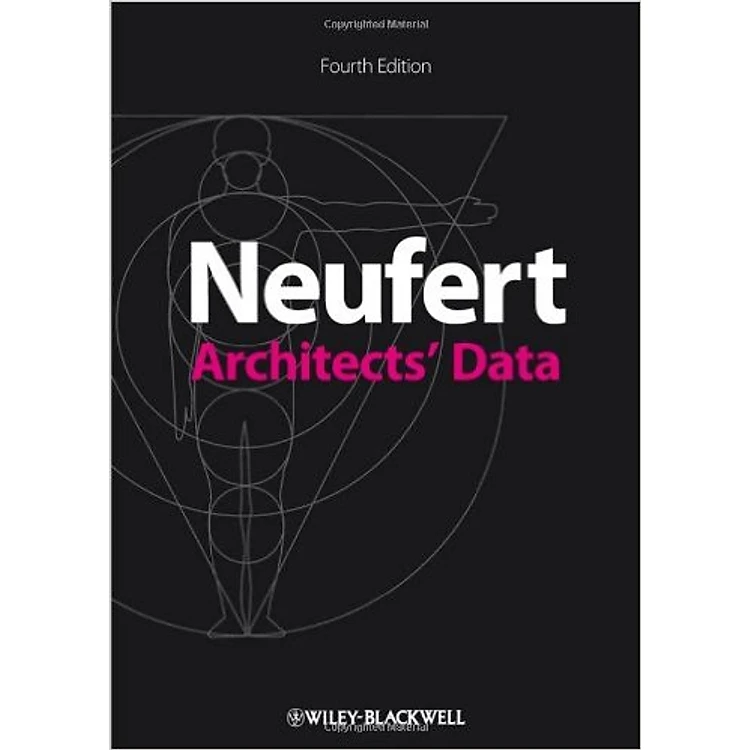Description
Thông tin chi tiết về Golden Treasury of Song, Yuan, Ming and Qing Poetry
| SKU | 3356791738002 |
EditorialReviews
In the translator for Mr. Xu Yuanchong, which engaged intranslation work for 70 years, in December 2010 won the “LifetimeAchievement Award Chinese translation culture”; August 2014 award by theinternational translation of literary translation in the field of high award -the northern lights outstanding literary translation award, becoming the firstwon the prize of Asian translators.
After Mr. Xu’s hands, many Chinese classics were translatedinto excellent English rhyme. The Chinese English version of the Chineseclassical Chinese poetry and prose is a representative of 14 kinds of Englishtranslations, and the Chinese edition is partly used in Chinese. These works,including a variety of genres, started from the Qin Dynasty to the QingDynasty, which is not only a cultural link linking all Chinese people’sthoughts and feelings, but also an important bridge for Chinese culture to goto the world. Read and understand these works, you can explore the culture of”China springhead”. I believe that this new version of Hui can makeEnglish readers to share the wisdom of Confucius, Lao Tzu share, Tang and Songpoetry, China classical opera is beautiful, and to promote the East Westcultural exchange.
In February 2, 2015, the Fifth China excellent publicationprize, which was held by the China Publishing Association, was announced inBeijing. “Xu translated Chinese classic poetry collection” (ChineseEnglish contrast) (Volume 14) was awarded the nomination award.
Main Content
Ancient Chinese classic poems are exquisite works of art. As far as 2,000 years ago, Chinese poets composed the beautiful work Book of Poetry and Elegies of the South, Later, they created more splendid Tang poetry and Song lyrics. Such classic works as Thus Spoke the Master and Laws: Divine and Human were extremely significant in building and shaping the culture of the Chinese nation. These works are both a cultural bond linking the thoughts and affections of Chinese people and an important bridge for Chinese culture and the world. Mr. Xu Yuanchong has been engaged in translation for 70 years. In December 2010, he won the Lifetime Achievement Award in Translation conferred by the Translators Association of China (TAC). He is honored as the only expert who translates Chinese poems into both English and French. After his excellent interpretation, many Chinese classic poems have been further refined into perfect English and French rhymes. This collection of Classical Chinese Poetry and Prose gathers his most representative English translations. It includes the classic works Thus Spoke the Master, Laws: Divine and Human and dramas such as Romance of the Western Bower, Dream in Peony Pavilion, Love in Long-life Hall and Peach Blossom Painted with Blood. The largest part of the collection includes the translation of selected poems from different dynasties. The selection includes various types of poems, lyrics and Yuan, Ming and Qing dynasty songs. The selected works start from the pre-Qin era to the Qing Dynasty, covering almost the entire history of classic poems in China. Reading these works is like tasting “living water from the source” of Chinese culture. We hope this collection will help English readers “know, love and appreciate” Chinese classic poems, share the intelligence of Confucius and Lao Tzu, share the gracefulness of Tang Dynasty poems, Song lyrics and classic operas and songs and promote exchanges between Eastern and Western culture. This book is one of the 14 books of Classical Chinese Poetry and Prose, a translation of Confucian classics Thus Spoke the Master.
Author
Xu was born in 1921 in Jiangxi, Nanchang. He graduated from thesouthwest United University and the University of Paris. Professor of literarytranslation, Peking University. English works include “Chinese PoetryRhyme”, “exploration feelting time”. In addition to C-Etranslation, “by the British Penguin publishing company immortalsong”, and “Book of Songs”, “Chu Ci”, “ThreeHundred Tang Poems”, “Song three hundred song”, “Li Baianthology”, “Selected Poems of Su Dongpo”, “the WestChamber” and “Mao Zedong poetry selection” English translationor translation method etc.. There are many famous literary works in the world,such as Mrs. Bovary, Gustave Flaubert, and so on. In 2010, he won the Chinesetranslation culture Lifetime Achievement Award.
MediaReviews
The poems, words and songs of the past dynasties are translated into English, and they can rhyme nature and have great power. It is di one in history.
Gu Yuxiu, an honorary retired professor of the late American University of Pennsylvania
Professor Xu has won a world reputation for its translation of Chinese poetry.
Xi – Rugu, Professor of University of California at Berkeley
The English translation of Chu Ci by Xu is a peak in English and American literature.
Kou Zhiming, a scholar at the Melbourne University, Australia
A translation of “the West Chamber” in the artistic and attractive, and can be Shakespeare’s “Romeo and Juliet” comparable.
The British goddess of wisdom press
Contents
Song Dynasty
Preface
Chen Tuan
My Hermitage
Liu Kai
On the Frontier
Wang Yucheng
In Banishment
The Mourning Day
Yang Pu
The Double Seventh Eve
Kou Zhun
On the River
Lin Bu
To the Mume Blossom
Fan Zhongyan
The Fisherman on the Stream
Yan Shu
To One Unnamed
Song Qi
To the Fallen Flower
Mei Yaochen
Roving in the Mountains
Ouyang Xiu
Reply to a Banished Friend
Before the Pavilion
Written in Dream
Su Shunqin
Passing by Suzhou
Li Gou
Nostalgia
Shao Yong
Song of Flower Spray
Wen Tong
The Moon Viewed After Rain in the Mountain
Zeng Gong
The West Tower……
Digest
Song of Peach Blossom Cottage
In the Peach Blossom Land there is a peach blossom plot;
A peach blossom lover lives in Peach Blossom Cot.
The peach blossom lover plants peach trees in days fine;
He sells his peach blossoms for money to buy wine.
When he is not drunk, he would sit before the flowers;
He would lie beneath them to spend his drunken hours.
From day to day half-drunk, half-sober he’d appear;
The peach flowers blossom and fall from year to year.
I would grow old and die among flowers and wine,
Rather than bow before the steed and carriage fine.
The rich may love their dust-raising carriages and bowers;
The poor only enjoy their cup of wine and flowers.
If you compare the poor with the rich low and high,
You’ll find the one on earth, the other in the sky.
If you compare the poor with the carriage and steed,
The poor have leisure while the rich gallop with speed.
Others may pity me so foolish and so mad;
I laugh at them for those who can’t see through are sad.
Can you find where the tombs of gallant heroes stand?
Without flowers or wine they turn into ploughland.
Song of a Year
There are three hundred and sixty days in a year;
Spring, summer, autumn, winter, each has ninty days.
It’s hard to bear in winter biting cold severe;
In summer it is boiling hot as in a blaze.
The third and ninth moons in spring and autumn are mild;
But in mild days there’s cutting wind or driving rain.
On counting up, few days are fine but many wild;
Without fine scenery, fine days are passed in vain.
If we should meet fine scenery when days are fine.
Together we’d make merry and delight our heart.
If we did not light candles bright and drink sweet wine,
We might misspend our life and play not well our part.
How wise is the motto said by the sage of old.
We should enjoy by candlelight sweet vernal flowers!
One vernal hour is worth a thousand coins of gold;
I say a thousand coins can’t buy back vernal hours.
Preface
Preface
Music moulds character, and therefore shares in determining social and political issues. When the modes of music change, the fundamental laws of the state change with them. —Plato
Let me write the songs of a nation, and I care not who makes its laws. —Daniel O’Connell
“We can understand a people, best through their poetry,” said Robert Payne in his White Pony, “and the Chinese who have written poetry since the beginning of time have always regarded poetry as the finest flower of their culture…. They have written more poetry than all the other nations of the earth put together.”
The Tang Dnasty (618–906) and the Song Dynasty (960–1279) were the Golden Age and the Silver Age of Chinese literature, not only of Chinese but also of world literature, for during the Dark Ages in the West, the Tang and the Song Empire attained the highest political, economic and cultural development not only in the East but also in the whole world. If the reader is interested in the greatest empires that had ruled over the greatest country in the world for more than six centuries, it would not be uninteresting to read Tang and Song poetry, which might reveal the secret of the highest and the longest-established civilization in world history. This secret may be summed up in two words, that is, rite and music. Music imitates the harmony of nature and rite imitates the order of the universe. Rite is instituted to secure the mean in man’s desire and music (including poetry) the mean in man’s sentiment. Rite and music in Confucius’ system are even more important than gymnastics and music in Plato’s system, for rite is to regulate man’s mind, music to harmonize man’s affection, government to promote their performance and law to guard against their violation. In comparison with rite and music, government and law are but secondary, for their main function is but to provide the conditions that make rite and music possible. That may be said to be the gist of Confucian philosophy of government, of which the reader can catch some glimpses in this Golden Treasury of Tang and Song poetry.
If the Tang poets imitated the order of the universe as they imitated the harmony of nature, that is to say, they were emotional in imitating both, then the Song poets may be said to imitated the former more than the latter, that is to say, they were more rational and less emotional than their predecessors. After the song of the Tang poets came the logic of the Song philosopher: the first emphasized appreciation and the second understanding. The bestknown poets of the Northern Song Dynasty were Su Shi (1037–1101) and Huang Tingjian (1045–1105). We may read, for instance, one of Su’s poems on Mount Lu:
It’s a range viewed in face and peaks viewed from the side,
Assuming different shapes viewed from far and wide.
Of Mountain Lu we cannot make out the true face,
For we are lost in the heart of the very place.
If the first couplet leads us to appreciate the beauty of nature, then the second leads us to understand the order of the universe. Strange to say, the understanding of the order of the human world might lead to disaster. For example, we may read another of Su’s poems written after the death of the old emperor and on the ascension to the throne of the new in 1085:
The crop still bears a plentiful harvest this year;
I feel myself already free from worldly care.
On my way back from the Temple good news I hear;
Even wild flowers and song birds have a cheerful air.
In this quatrain we may find harmony between nature and man, and by “good news” the poet meant the new emperor’s ascension; put his political enemy in power interpreted the “good news” as the death of the old emperor and the poet was exiled far, far away from the capital. This may serve to show how much more the Song Dynasty emphasized the order of the human world than the harmony of nature…
























Reviews
Clear filtersThere are no reviews yet.